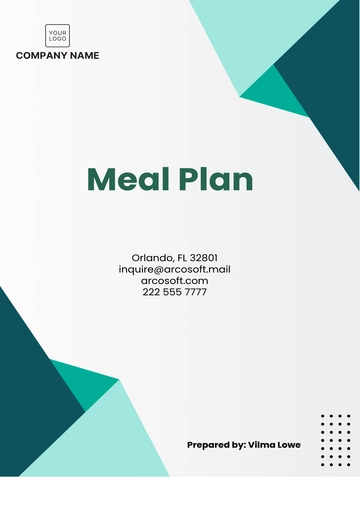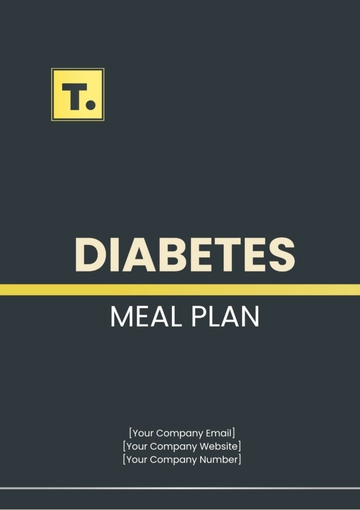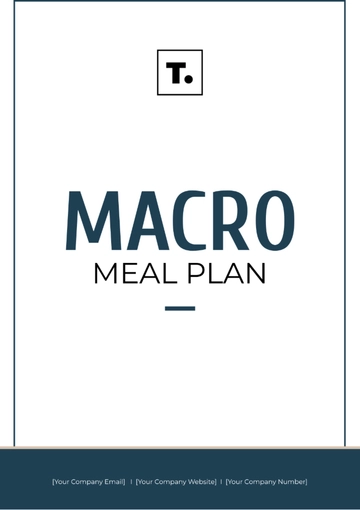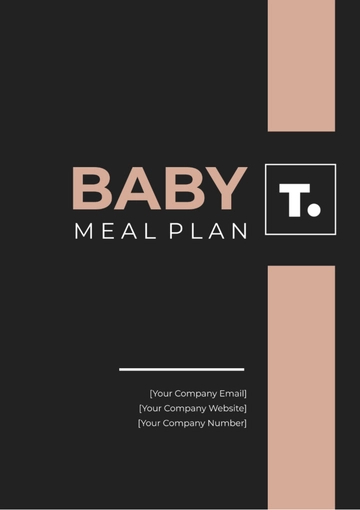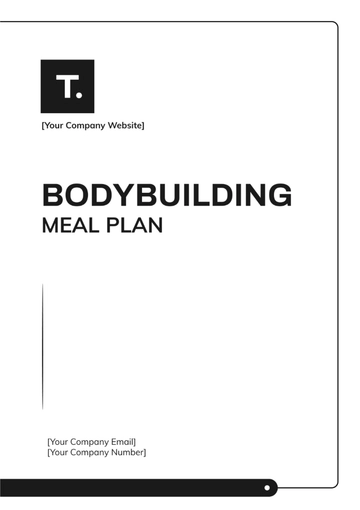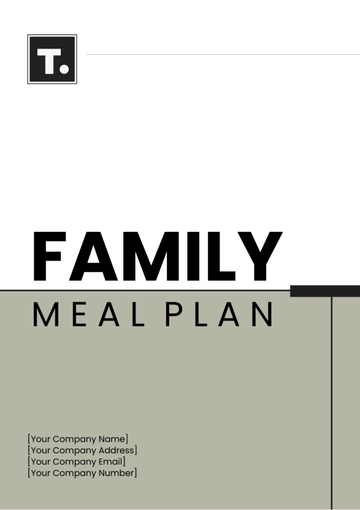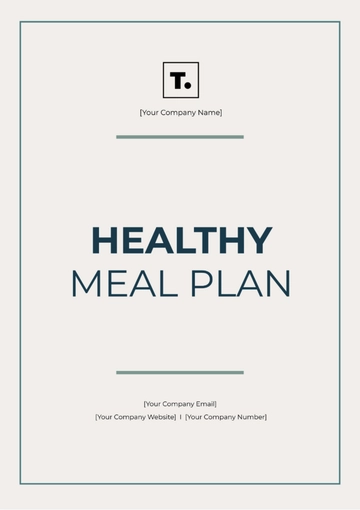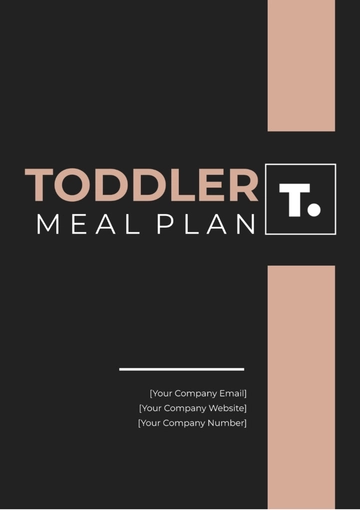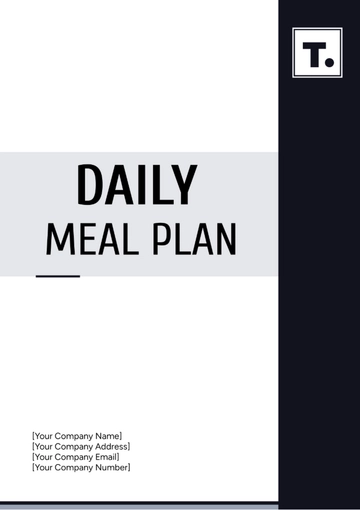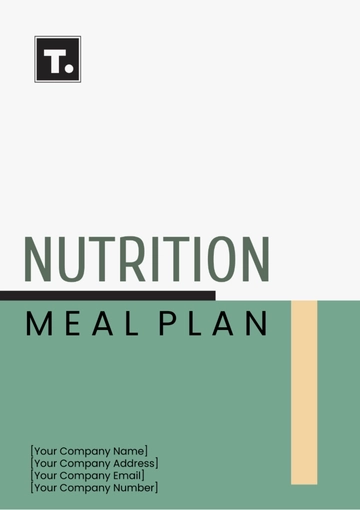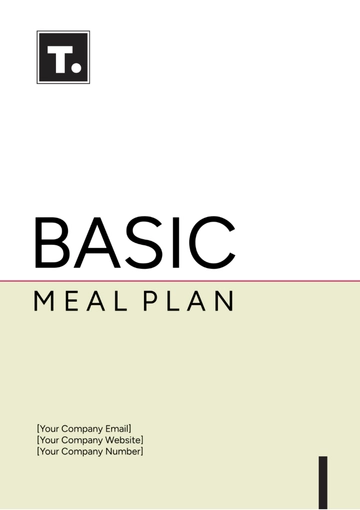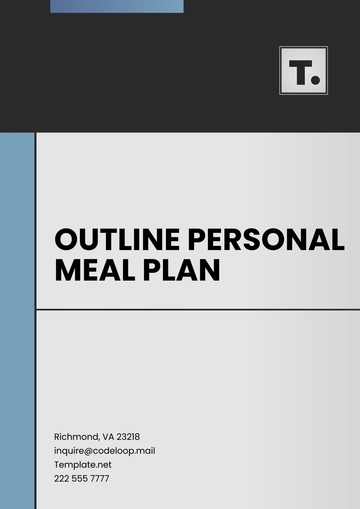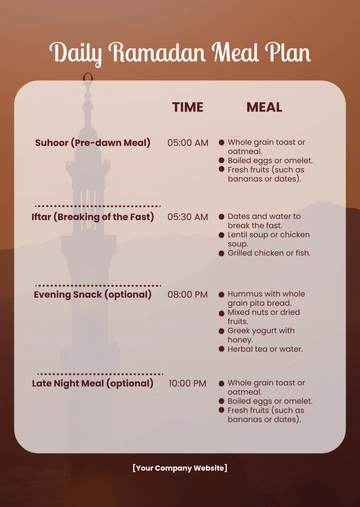Free Meal Plan

I. Introduction to Fitness-Focused Meal Planning
A. Overview of Goals
Fitness meal planning is essential for supporting specific goals such as muscle building, fat loss, or increasing energy for workouts. The plan should be tailored to meet the individual’s unique needs, whether that involves fueling intense workouts or building lean muscle mass. A properly structured meal plan can help improve performance, support recovery, and optimize body composition.
B. Key Principles of a Fitness Meal Plan
A fitness-focused meal plan revolves around balanced macronutrients: protein for muscle repair, carbohydrates for energy, and fats for overall health. Nutrient timing is another critical factor, ensuring that meals and snacks are consumed at the right times to maximize performance and recovery. Hydration is also a key element; adequate water intake supports muscle function and overall health during exercise.
C. Importance of Consistency and Variety in Diet
Sticking to a consistent meal plan ensures that your body receives the necessary nutrients every day. Variety in meals helps prevent nutritional deficiencies and keeps meals interesting. Experimenting with different foods while adhering to the same macronutrient principles ensures that your body gets everything it needs for optimal performance and health.
II. Macronutrient Breakdown
A. Protein
Protein is crucial for muscle growth, repair, and recovery. When you engage in resistance training or intense physical activity, your muscle fibers experience stress, and protein helps repair and rebuild them, leading to growth. Aim for about 1.5 grams of protein per kilogram of body weight, adjusting based on your activity level and goals, to maintain muscle mass and optimize recovery.
B. Carbohydrates
Carbohydrates are the body's primary energy source, fueling both endurance and strength training. Consuming complex carbs like whole grains, fruits, and vegetables provides a steady release of energy throughout the day, while simple carbs (such as fruits) offer a quick energy boost when needed. For muscle building or fat loss, carbs should be strategically timed—more carbs pre-workout for energy and post-workout to replenish glycogen stores.
C. Fats
Healthy fats are essential for hormone production, including testosterone, which is involved in muscle growth. Fats also contribute to overall satiety, helping prevent overeating, and are involved in nutrient absorption, particularly for fat-soluble vitamins (A, D, E, K). Focus on sources like olive oil, avocados, and fatty fish to ensure a balanced intake of Omega-3 and Omega-6 fatty acids, which support cardiovascular and joint health.
D. Fiber
Fiber plays a critical role in digestive health, preventing constipation and maintaining regular bowel movements. High-fiber foods like vegetables, fruits, legumes, and whole grains also promote satiety, helping to control hunger and aid in fat loss by reducing the likelihood of overeating. Fiber helps regulate blood sugar levels, which can improve energy stability and prevent crashes during or after workouts.
III. Meal Timing & Frequency
A. Number of Meals per Day
The number of meals you consume per day should support your fitness goals while maintaining consistent energy levels. While three main meals and two to three snacks are typical for most people, adjusting based on individual needs is important. For those focusing on muscle building or fat loss, frequent smaller meals can help with digestion and optimize nutrient absorption throughout the day.
B. Nutrient Timing
Nutrient timing refers to the strategic consumption of meals to optimize workout performance and recovery. Pre-workout meals should emphasize easily digestible carbs for quick energy and moderate protein to prevent muscle breakdown. Post-workout nutrition should prioritize protein and carbohydrates to accelerate muscle repair and replenish glycogen stores, ideally within 30-60 minutes after exercise to maximize recovery.
C. Spread Protein Intake
Spreading protein intake evenly throughout the day ensures consistent muscle protein synthesis, which is essential for muscle repair and growth. Aim to consume 20-30g of high-quality protein with each meal to keep muscle-building processes active throughout the day. This consistent intake also supports metabolism, as the body expends energy digesting and metabolizing protein, making it an important component of weight management.
IV. Sample Daily Meal Plan
Meal | Food | Macronutrient Breakdown |
|---|---|---|
Breakfast | 3 scrambled eggs with spinach and bell peppers, 1 cup oats with mixed berries and chia seeds | Protein: 30g, Carbs: 45g, Fats: 20g |
Mid-Morning Snack | Greek yogurt (unsweetened) with almonds and a drizzle of honey | Protein: 15g, Carbs: 20g, Fats: 10g |
Lunch | Grilled chicken breast with quinoa and steamed broccoli, mixed greens salad with olive oil dressing | Protein: 40g, Carbs: 50g, Fats: 15g |
Pre-Workout Snack | Banana with 1 scoop of whey protein | Protein: 20g, Carbs: 30g, Fats: 5g |
Post-Workout Meal | Grilled salmon with sweet potatoes and asparagus | Protein: 35g, Carbs: 50g, Fats: 20g |
Evening Snack | Cottage cheese with chia seeds and mixed berries | Protein: 25g, Carbs: 15g, Fats: 10g |
V. Supplementation
A. Protein Powder
Protein powder can be a convenient and effective way to meet daily protein needs, especially when whole foods are not enough or if you're in a rush. Whey protein is rapidly absorbed, making it ideal for post-workout recovery, while plant-based options like pea or soy protein are great for those with dietary restrictions. Depending on the individual's preference and tolerance, protein powders can also be used in smoothies, baked goods, or mixed with water or milk for a quick, portable snack.
B. Creatine
Creatine is one of the most researched and effective supplements for increasing muscle strength and power, particularly during short bursts of high-intensity exercise like weightlifting or sprinting. It works by replenishing ATP (adenosine triphosphate) in muscle cells, which enhances energy production during exercise, allowing for more reps or longer training sessions. Creatine is typically taken in a daily dose of 3-5g and can be consumed at any time, but many people choose to take it post-workout for convenience.
C. BCAAs (Branched-Chain Amino Acids)
BCAAs—leucine, isoleucine, and valine—are essential amino acids that play a key role in muscle recovery and reducing muscle breakdown during exercise. These can be especially beneficial during periods of calorie restriction or fasting, as they help preserve lean muscle mass. BCAAs are often consumed during workouts or immediately post-workout, but they can also be taken throughout the day to promote muscle protein synthesis.
D. Multivitamin
A multivitamin supplement ensures that you are getting the essential vitamins and minerals your body needs to perform optimally, particularly if your diet lacks variety. These nutrients play vital roles in energy production, immune function, and muscle recovery, which are crucial for anyone pursuing fitness goals. While whole foods are the best source of vitamins, a multivitamin acts as an insurance policy to fill any potential gaps in your diet.
VI. Adjustments Based on Specific Goals
A. Muscle Building
To support muscle building, you need to ensure you're in a calorie surplus, meaning consuming more calories than you burn to provide your body with the necessary energy for growth. Protein intake should be prioritized, aiming for 1.5-2g per kilogram of body weight to stimulate muscle protein synthesis. Additionally, carbohydrate intake may be increased to fuel workouts and replenish glycogen stores, ensuring muscles have the energy to perform at their best during strength training
B. Fat Loss
When focusing on fat loss, creating a calorie deficit—consuming fewer calories than your body burns—is key to achieving weight loss while preserving muscle mass. A higher protein intake is important in this phase to prevent muscle breakdown, particularly when in a calorie deficit. Adjusting carbohydrate intake can also help, with moderate consumption of complex carbs to maintain energy levels without exceeding your caloric needs, and incorporating healthy fats for satiety and metabolism support.
C. Increasing Energy for Workouts
To increase energy for workouts, it's important to focus on the right balance of carbohydrates for sustained energy and protein to prevent muscle breakdown during exercise. Carbohydrates should be consumed in the pre-workout meal, especially from complex carbs, to fuel prolonged or intense training sessions. Ensuring that your hydration levels are optimal is also crucial, as even mild dehydration can significantly reduce exercise performance, especially during cardio or strength training sessions.
VII. Tracking and Monitoring Progress
A. Track Calories and Macronutrients
Tracking calories and macronutrients through apps like MyFitnessPal or Cronometer helps ensure that you are staying on target with your fitness goals. By logging each meal and snack, you can analyze the nutrient breakdown and make sure you’re hitting your daily protein, carb, and fat targets. Regular tracking also allows you to make data-driven adjustments to your meal plan based on how your body is responding to the nutrition.
B. Adjust Portions Based on Progress
Adjusting portion sizes based on progress is essential for ensuring continued progress toward your fitness goals. If you're building muscle, you may need to increase calories and protein slightly to fuel growth, while for fat loss, reducing portion sizes or adjusting macronutrient ratios may be necessary. Regular check-ins with progress photos, measurements, and strength improvements help you decide when to tweak your portions to stay on track.
C. Monitor Workout Performance
Tracking workout performance can provide insight into whether your current nutrition plan is supporting your training goals. If you're able to lift heavier weights, complete more reps, or increase endurance, your diet is likely fueling your progress effectively. Conversely, if your energy levels are low or your strength is plateauing, it may be time to revisit your macronutrient balance, hydration levels, or meal timing to ensure your body has the necessary fuel to perform.
- 100% Customizable, free editor
- Access 1 Million+ Templates, photo’s & graphics
- Download or share as a template
- Click and replace photos, graphics, text, backgrounds
- Resize, crop, AI write & more
- Access advanced editor
Transform your fitness journey with the Meal Plan Template from Template.net. Fully editable and customizable, this tool allows you to create a personalized nutrition plan that aligns with your goals. Effortlessly tweak the details using the intuitive AI Editor Tool, making it easier than ever to design meals that fuel your performance.
